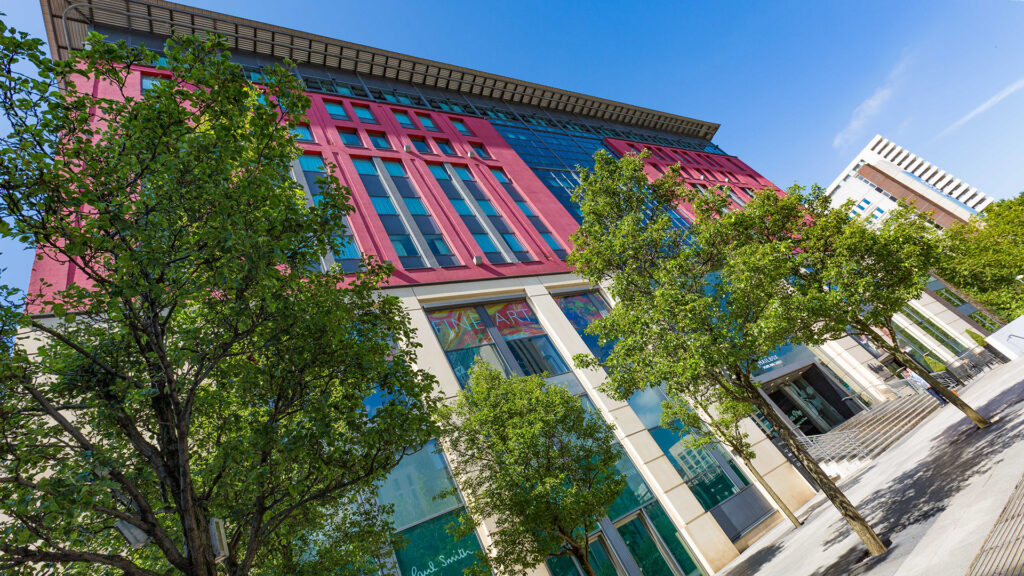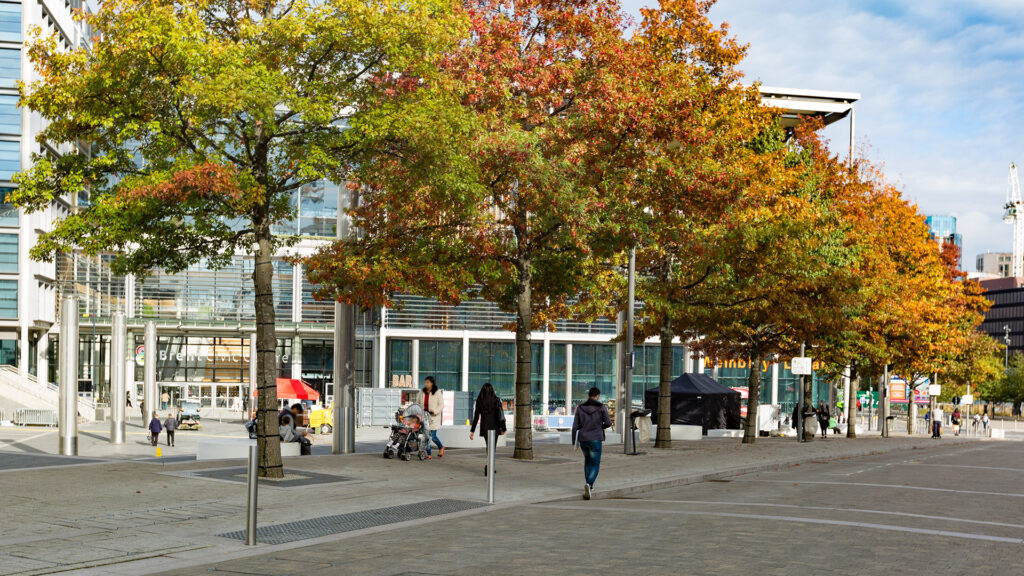Many potential tree-planting schemes are cancelled because of misunderstandings over the long term requirements of trees. Concerns over local authority adoption, potential commuted sums and maintenance issues can lead to trees being viewed as liabilities rather than the incredible assets that they truly are. Let’s take these issues apart, as a better understanding of these constraints can help overcome them.

Local Authority adoption.
This is the act of a local authority taking on the responsibility of any asset within the public realm. This can include road, pavements, street lighting, street furniture, drainage and trees and other elements within the adopted zone. Understandably, the local authority has certain standards that have to be adhered to if they are to take ownership of any asset, including its long-term maintenance. Each adopting authority has the right to levy a charge (known as a commuted sum) to cover the potential maintenance costs over an allotted period of time. The benefit to the initial developer is that the long term responsibility is no longer theirs, relieving them of long term liability, and allowing them to reduce their exposure to any potential issues in the future. However, some local authorities and highways authorities are reluctant to adopt some features in the streetscape due to the lack of resources available, limiting the quality of the urban landscape. At times, when a local authority declines to adopt a street, a management company is created to manage the area, including maintenance of the assets and insuring against potential liabilities.
Commuted sums.
As mentioned above, these financial contributions are levied by a local authority on any asset that they are asked to adopt. Every local authority has the right to decide on what this amount should be and how long it should cover the asset, which can be very confusing as figures can differ widely across different councils. Normally, these agreements are made under Section 38 and/or Section 278 of the Highways Act 1980 – often referred to as the 1980 Act, which confers wide-ranging powers to secure these contributions. The calculation of a commuted sum is quite complex and includes the current cost of replacement of the asset, the design life of the element, the rate of investment return on the invested commuted sum over the period of the sum, the rate of inflation of the maintenance works and the agreed time period. It also takes into account the service costs, including cleansing, landscape maintenance and energy use. Once these figures have been collated, a formula is used to finalise the total upfront contribution payable by the developer. Unfortunately, when trees are being considered, historic tree failure and damage to adjacent infrastructure often means that the potential maintenance and replanting costs are heavily weighted, at times making the commuted sum prohibitive. The commuted sum also does not take into account the benefits that trees bring or the fact that as the tree grows, its value also increases.
We believe that a more nuanced approach is urgently needed whereby where best practice tree planting with good volumes of un-compacted soil provided is carried out, commuted sums should be reduced to reward the forward-thinking developers.

Maintenance.
Tree maintenance is unfortunately widely misunderstood; whilst the maintenance-free tree has yet to be found, healthy, well-planted trees are very low maintenance. Early post-planting maintenance is critical, with most tree failures in the first three years down to a lack of watering during dry periods. Once a tree is struggling and under stress, it becomes more liable to pest and disease and is likely to become a liability and an ongoing cost. Once the roots have established, the tree should source its own water, and maintenance becomes minimal – just an annual visual inspection and any minimal pruning necessary. It has been calculated that the real cost of maintaining a healthy street tree could be as little as £5 per annum – which is well below the figures often quoted. Intelligently planted trees with root management and decent soil provision are not a liability, but an asset that increases in value.

ArborAdvance Tree Warranty
GreenBlue Urban is proud to be the first company in the world to be able to guarantee tree health for 15 years. With an unbroken history of success in urban tree planting, having proven methodologies and innovative products, we are now able to offer a guarantee that the tree will not only still be alive, but thriving. In the unlikely event of a tree failing due to poor soil conditions or a failure of GreenBlue Urban solutions, then the tree will be replaced at no cost to the client. At a minimal administration and inspection annual fee, this warranty will remove the worry of tree failure. We believe that this initiative will promote better tree planting practices, and perhaps raise the question as to whether the “5 years dead or diseased tree replacement clause” on many planning conditions is fit for purpose. If trees can be guaranteed for 15 years, why are we only requesting a 5-year maximum life?
ArborAdvance – providing a healthy future for our children.


